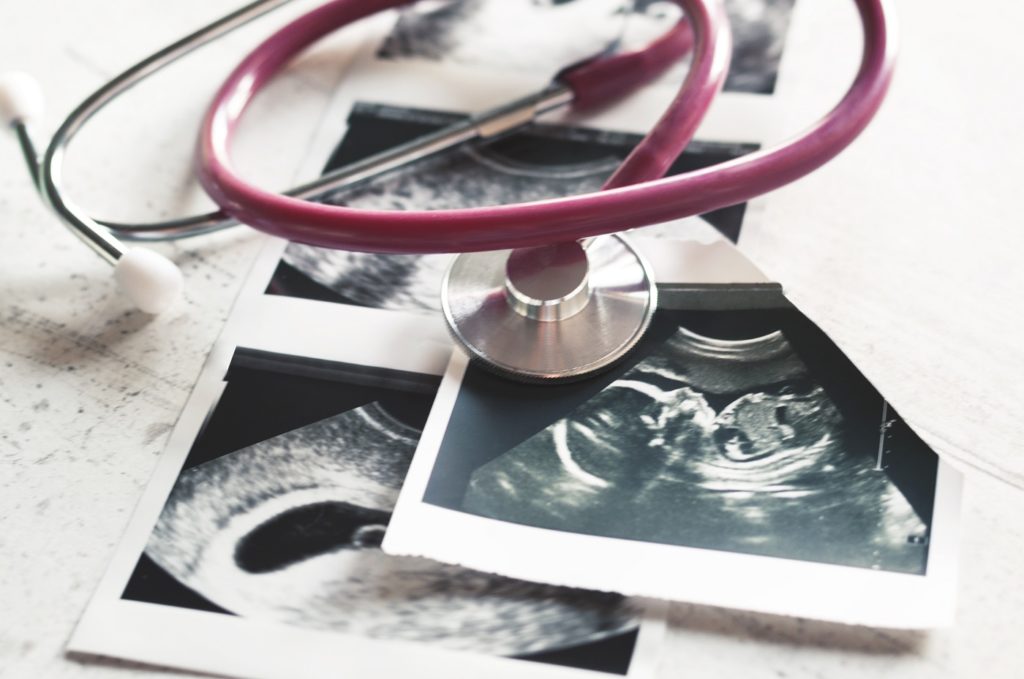In May, the Supreme Court granted review in Dobbs v. Jackson Women’s Health Organization, a case challenging the constitutionality of a Mississippi law that bans abortion after fifteen weeks of pregnancy, albeit with exceptions for fetal abnormalities and health emergencies.
It’s big news, since the case “poses a major threat to Roe v. Wade” and is the “biggest threat to abortion rights to arise since Amy Coney Barrett joined the Court,” according to Vox. The Washington Post suggested it could “kill” Roe, or “let it die slowly,” depending on the decision and its rationale. The Guardian, temperate as always, claimed that Dobbs “could rip up precedent” and for good cause “alarm bells are ringing.” Of course, Court-watchers are speculating about the vote, wondering what Roberts will do, among other justices.
Given all this, it is worthwhile to go back into the Public Discourse archives and reread some of the many excellent essays on abortion we’ve published over the years. We’re unflinching in our commitment to the dignity of every person from conception to natural death, and just as unwavering in our commitment to making and learning from good arguments. We think the moral wrongness of directly intending the death of an unborn child is knowable by reason, and reject the idea that the claim is merely emotive or solely based in religious faith.
In this month’s Featured Collection, please see some essays that may be useful in considering the moral issues of abortion, and may also be helpful as the public conversation about Dobbs intensifies in the coming months.
Start your day with Public Discourse
Sign up and get our daily essays sent straight to your inbox.First, I again extend my invitation to Nicholas Kristof to join us at Witherspoon for dinner. Last November, I responded to an essay of his on abortion, asking him to “accept a friendly, genuine, and open invitation to dinner” with us. Mr. Kristof politely declined the invitation, saying he would “wait til after the pandemic to do any dinner.” Well, restaurants are open in Princeton, and the invitation still stands: “You can ask any questions you’d like. We won’t be offended or shirk from answering, but you should try to hear us in our own words—we have thought about these things and we’re happy to dialogue.” We can even discuss the articles of this Featured Collection.
A classic Public Discourse essay, well worth reading repeatedly, is Michael Stokes Paulsen’s “The Unbearable Wrongness of Roe.” He doesn’t pull punches, concluding that Roe was a “radical, legally untenable, and immoral decision” that badly harmed the Court’s legitimacy. Dobbs offers the Court an opportunity to correct its grave error and regain its own self-respect, as well as the respect of the other branches of government, the states, and the people.
Beyond the legal questions, there remains the “lazy slander” of those claiming pro-lifers only care about life in the womb and “do nothing to support mothers and infants who are already in the world.” This claim is as common as it is tedious and false, as demonstrated by Helen Alvaré and her co-authors Greg Pfundstein, Matthew Schmitz, and Ryan T. Anderson in their essay from 2011.
More directly, John B. Londregan gives reasons for banning abortion—reminding us that “one need not be religious to oppose abortion.” He provides a secular point of view while suggesting that the inability to understand the connection between “opposition to abortion and secular morality bespeaks [a] loss of moral direction.” For his part, in a 2010 essay, John Finnis explains how the term “fetus” is “the other F-Word,” and its use often “obscures our perception of moral reality.” Outside of a medical context, describing the unborn human being as fetus “is offensive, dehumanizing, prejudicial, manipulative.” Finally, Gabrielle Girgis explains why the manipulation of language obscures the issues, and provides an account of personhood. The infant, like the unborn child, is a person with a right to life, whatever some reductive and untenable accounts of personhood suggest.
To recover our moral direction, we need to speak and think well. These essays can help us to do so.
Whatever happens in Dobbs, many of our friends and fellow citizens do not understand or accept the intrinsic dignity of all human beings. This is a tragedy, not only for the unborn but also for those who do not recognize the value of each and every person—in their refusal, they harm their own moral standing. With all good will, and in much hope, I offer these essays for consideration.
Thank you for reading Public Discourse.
R. J. Snell
Editor-in-Chief











